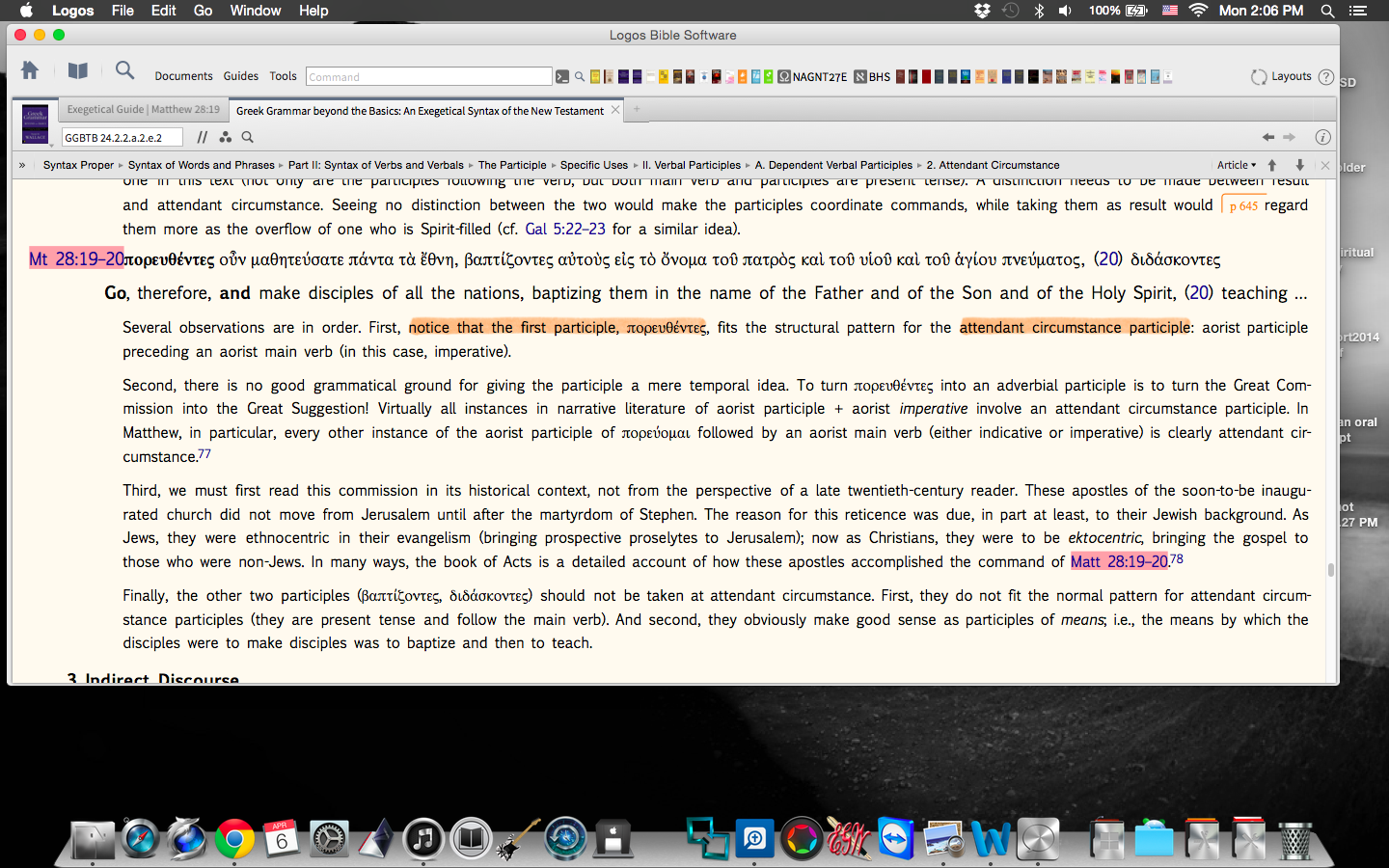Hello everyone, I was doing some work on a word in Matthew 28:19. The first Greek word is the participle poreuthentes and the exegetical guide says it is syntactically a contemporaneous participle with a citation of Wallace. However, when I looked at Wallace, he says it is an attendant circumstance participle and cites this very passage and goes into detail as to why. I am curious why it would say this and cite Wallace inaccurately for something Wallace says differently. By the way, Wallace speaks about this very text in his book on page 645. I have never found the parsing to be off, but he syntactical word analysis I am now wondering how many other words like this one are described incorrectly? Any thoughts? Here are some pictures...

